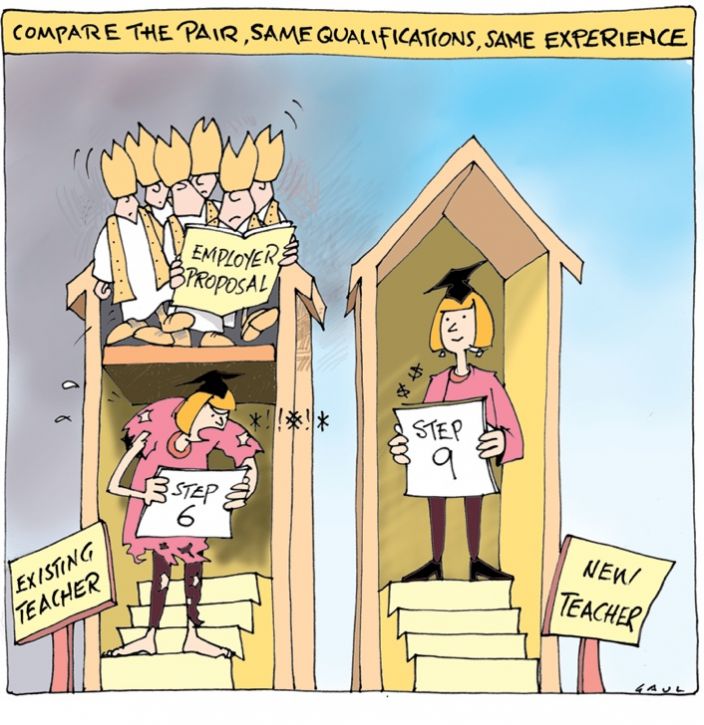
Responsibility for the delay lies entirely at the feet of Catholic employers who abandoned the accepted practice of negotiating these matters to adopt a radical and discredited process of developing their own document that largely rewrote every clause and every condition to suit them.
That document was and continues to be flawed, almost fatally so.
While the Union has made significant progress in culling the most excessive parts of the original proposal a number of elements remain unacceptable to the Union and its members.
Employers are proposing a new ‘standards’ pay scale from 2016 with transitional arrangements phasing in the new scale until 2019.
As it currently stands the employer proposal would require those teachers classified up to Step 10 in 2016 to remain on their current step for an additional year. This issue has arisen late in the negotiations because of the lack of clarity of the various proposals put by employers late last year and the constant redrafting of their proposed classification and translocation clauses.
The IEU raised this specific translocation issue that has arisen in the current employer draft in the meetings of 23 January and on 23 February . We are now awaiting employer representatives to “get back to us”.
The current proposal also treats existing teachers differently to those who are new to Catholic schools.
Consider the treatment of this pair. Identical twins who completed a B Ed in 2014 and commenced full time work this year, one in a Catholic school and the other in a government school. Both succeed in achieving accreditation at Proficient level by the end of 2015. The teacher from the Department of Education and Communities moves to a Catholic school in 2016 and according to the employers’ proposal would be classified on the ‘proficient teacher’ Step equal to Step 9 on the current scale. The other twin who as at January 1, 2016 is at Step 6 would enjoy the privilege of remaining there for a further year and earn $10,000 less. Even if the existing employee moved to Step 7 they would earn significantly less.
This arrangement is simply unacceptable. CCER have undertaken to “get back to us” on the whole translocation issue, including the inequitable treatment.
Thousands of teachers who have been accredited at Proficient level would under the employers’ current proposal be translocated to the classification of ‘Graduate’ while pre-2004 teachers who hold no accreditation would be classified to high levels of ‘Proficient Teacher’. This is at best insensitive but many will see it as insulting.
Sick leave, lunch breaks and the operation of various ‘formulae’ continue to be in dispute. In all there are a dozen or so matters on which employers will “get back to us” following consultation with the 11 diocesan directors.







































































































































